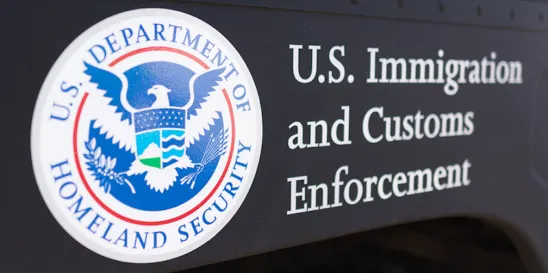On Oct. 23, 2023, the Department of Homeland Security (DHS) announced the Notice of Proposed Rulemaking (NPRM) to amend H-1B regulations. The purpose of the NPRM is threefold: 1) to modernize and improve the efficiency of the H-1B program; 2) to provide greater benefits and flexibilities; and 3) to improve integrity measures. This proposed regulation is open for public comment until Dec. 22, 2023. Comments can be submitted through the Federal eRulemaking Portal, referencing DHS Docket No. USCIS-2023-0005.
The proposed rule will not take effect until the comment period ends and DHS publishes a final regulation. It is not clear if new provisions will be implemented in time for the upcoming cap registration season in March 2024.
This blog post summarizes the proposal’s key points.
-
Modernization and Efficiencies
DHS intends to streamline requirements for the H-1B program with the following proposals:
Revisions to the definition of ‘Specialty Occupation.’ U.S. Citizenship and Immigration Services (USCIS) seeks to revise the regulatory definition and standards for a “specialty occupation” by clarifying the following:
- There must be a direct relationship between the required degree field and the duties of the position.
- A position will not qualify as an H-1B Specialty Occupation if it solely requires a general degree without further specialization (i.e., business administration, an unspecified quantitative field, or an engineering degree in any field of engineering).
- Multiple degree fields required will not automatically disqualify the petition, but the petitioner has the burden of proof to explain how those disparate fields of study relate to the job duties.
Amend the Criteria for Specialty Occupation Positions. USCIS seeks to revise the criteria for specialty occupations by clarifying the following in the NPRM:
- Currently, the regulatory criteria states that a bachelor’s degree is “normally” required for the position. The proposed rulemaking seeks to clarify that “normally” does not mean “always.”
- Historically the regulations utilized a four-prong analysis to determine whether a position qualified as a specialty occupation. The proposed rule seeks to change this to a three-prong analysis by consolidating the second prong into the fourth.
- When a beneficiary is staffed at a third party, DHS seeks to add the phrase “or third party if the beneficiary will be staff to that third party.” This change would allow the petitioner to use the third party’s typical requirements to prove specialty occupation.
Amended Petitions. Currently, an H-1B amendment is required when there is a material change in the terms of the H-1B employment, including a change in job duties, change in the worksite location outside the geographic area of employment, change in hours, or other changes that impact the conditions outlined in the underlying approved H-1B petition. The proposed rule seeks to clarify when an amended petition must be filed if there is a change in the worksite location. It also seeks to clarify when an amended or new petition is required for short-term placement of H-1B workers. The NPRM proposes the following:
- Any change in worksite location that reflects a material change requires a new petition.
- A new or amended petition must be filed before the change takes place.
- An amended or new petition is not required when the beneficiary is going to a non-worksite location to participate in employee development.
Deference. The proposed rule seeks to codify existing deference policy where adjudicators generally should defer to a prior determination involving the same parties and underlying facts if there is no material change. Codifying the deference policy is designed to better ensure consistent adjudications.
Maintenance of Status. According to the proposed rule, evidence of maintenance of status must be included with the initial filing of petitions that request to extend or amend the beneficiary’s stay. The NPRM also clarifies:
- Petitioners should provide evidence with the initial filing, rather than waiting for a request for evidence.
- The changes would impact the following employment-based classifications: E-1, E-2, E-3, H-1B, H-1B1, H-2A, H-2B, H-3, L-1, O-1, O-2, P-1, P-2, P-3, Q-1, R-1, and TN nonimmigrants.
- Such evidence may include paystubs, W-2 forms, quarterly wage reports, tax returns, contracts, and work orders.
Eliminating the Itinerary Requirement for H Programs. The proposed regulation seeks to eliminate the itinerary requirement for H-1B and H-2 petitions, as the information provided in an itinerary is largely duplicative of information already provided in the Labor Condition Application (LCA).
Validity Expires Before Adjudication. DHS proposes to allow H-1B petitions to be approved or have their requested validity period dates extended if USCIS adjudicates and deems the petition approvable after the initially requested validity period end-date, or the period for which eligibility has been established, has passed. This generally would occur if USCIS deemed the petition approvable upon a favorable motion to reopen, motion to reconsider, or appeal.
-
Benefits and Flexibilities
DHS proposes to modernize the definition of employers who are exempt from the annual statutory limit on H-1B visas and provide further benefits and flexibilities in the regulations. The proposed regulation allows additional flexibility for both beneficiaries and nonprofit and government research organizations.
H-1B Cap Exemptions. The NPRM proposes the following:
- Replace “primarily engaged” and “primary mission” with “fundamental activity.” Such change would allow flexibility for beneficiaries whose work contributes (but does not predominately further) the qualifying organization’s purpose.
- Clarify that a qualifying employer can have more than one “fundamental activity.”
- Change the phrase “the majority of” to “at least half” to permit beneficiaries flexibility to qualify for cap-exempt status if they spend 50% of their time performing job duties at a qualifying research organization and 50% at a cap-exempt employer.
- Clarify that performing at least 50% of the duties at a qualifying cap-exempt employer does not mean those duties need to be performed physically onsite.
- Eliminate the requirement that the petitioner must show a direct correlation between the beneficiary’s duties and the essential purpose, mission, objectives, or functions of the qualifying organization.
- Amend the definition of “nonprofit or tax exempt organizations” and eliminate the requirement to provide an IRS letter demonstrating the petitioner has been approved as a tax exempt organization “for research or educational purposes.” The petition still needs to provide documentation that it meets this requirement, but it does not need to be in the form of an IRS letter.
Automatic Extension of Authorized Employment. DHS proposes to provide flexibilities and address “cap-gap” issues by extending F-1 status and related work authorization until April of the relevant fiscal year. Currently, cap-gap is provided only until Oct. 1 of the relevant fiscal year.
Start Date Flexibility for Certain H-1B Cap-Subject Petitions. DHS also proposes greater flexibility on the requested H-1B employment start date listed on the Form I-129 petition to permit start dates that are after Oct. 1. Specifically:
- The H-1B petition must be a nonfrivolous filing.
- The requested start date cannot be more than six months beyond the filing date of the petition.
- If the H-1B petition with the underlying cap-gap extension is denied before April 1, the cap-gap would end, and the F-1 student would have 60 days to depart the United States or take other action to maintain their status in the country.
-
Integrity
DHS proposes to address H-1B Cap registration “abuse” by changing the way USCIS selects registrations. Several anti-fraud safeguards would be made to the current registration system to bolster the selection process and reduce the possibility of misuse and “gaming” of the system.
H-1B Registration System. Each beneficiary would have the same chance of being selected, regardless of how many registrations are submitted on their behalf.
- DHS proposes to select registrations by unique beneficiary rather than by registrations. Each unique individual would be entered into the selection process once, regardless of how many registrations were submitted on their behalf.
- Related entities would not be allowed to submit multiple registrations for the same beneficiary.
- The NPRM seeks to codify USCIS’s authority to deny an H-1B petition, or revoke an approved H-1B petition, if the underlying registration contains a false attestation or is otherwise invalid.
Beneficiary-Centric Selection. Beneficiaries would be allowed to have more than one registration submitted on their behalf, but each beneficiary would be entered in the selection process only once. Thus, if a random selection were necessary, selection would be based on each unique beneficiary, rather than each registration.
- Previously, registrants have been able to bypass the passport requirement by indicating that they do not have a passport. The proposed regulation would require registrants to have a valid passport at the time of registration.
- These changes may provide beneficiaries with greater autonomy with respect to their H-1B employment.
Bar on Multiple Registrations Submitted by Related Entities. Currently, DHS does not allow related entities to file multiple petitions for the same beneficiary. The proposed change would also bar related entities from submitting multiple registrations.
Registrations with False Information or that Are Otherwise Invalid. Currently, the regulations state if the petition contains material that is not true and correct, inaccurate, fraudulent, or misrepresents a material fact, the petition is subject to grounds for denial or revocation. DHS seeks to codify those requirements and extend the same requirements to the information provided in the registration. Furthermore, if a petitioner submits more than one registration per beneficiary in the same fiscal year, the proposed regulations will consider all of the registrations to be invalid.
Alternatives Considered. DHS plans to continue using the registration system and will not revert to the old paper-based filing system. Efforts will be made to continue to enhance the registration system, and DHS welcomes public comment on this issue.
Provisions to Ensure Bona Fide Job Offer for a Specialty Occupation Position. The proposed rule would codify USCIS’s authority to request contracts, work orders, or similar evidence to establish the contractual relationship between all parties as well as state the minimum educational requirements to perform the job duties. The rule also seeks to codify the requirement that the petitioner establish that non-speculative employment exists at the time of filing the petition. The NPRM would:
- Provide USCIS authority to ensure the LCA properly supports and corresponds with the petition.
- Alter the definition of “United States Employer” and remove the reference to Employer-Employee relationship from the definition.
- Codify the existing requirement that the petitioner has a bona fide job offer for the beneficiary to work within the United States and add clarification that the bona fide job offer may include “telework, remote work, or other off-site work in the United States.”
- Add a new requirement that the petitioner has a legal presence in the United States.
Beneficiary-Owners. DHS proposes to clarify that beneficiary-owners may be eligible for H-1B status even when the beneficiary possesses a controlling interest in that petitioner.
- Conditions would apply when the beneficiary owns more than 50% or has more than 50% of the voting rights of the petitioner. Conditions would not apply if the beneficiary does not own a controlling interest.
- The beneficiary must perform specialty occupation duties more than 50% of the time and can also perform non-specialty occupation duties that involve owning and operating the business.
- Validity period of such petitions would be limited to 18 months. Subsequent extensions would not be limited and could be approved for up to three years.
Site Visits. DHS proposes to codify its existing authority to conduct site visits to maintain the integrity of the H-1B system. The NPRM would:
- Establish consequences for failure to comply with site visits, including denial or revocation of the petition.
- Clarify that public inspections would include onsite visits, interviews with officials, review of records related to compliance or any records USCIS deems pertinent to the facts related to the petition, as well as interviews with any individual.
- Clarify that inspections may occur at the petitioner’s headquarters, satellite locations, or any location where the beneficiary will work, including the beneficiary’s home or third-party worksites.
Third Party Placement. DHS proposes to clarify that if an H-1B worker will be placed at a third party’s organization, USCIS will consider the requirements of that third party, and not the petitioner, to determine whether the position is a specialty occupation.




 />i
/>i

